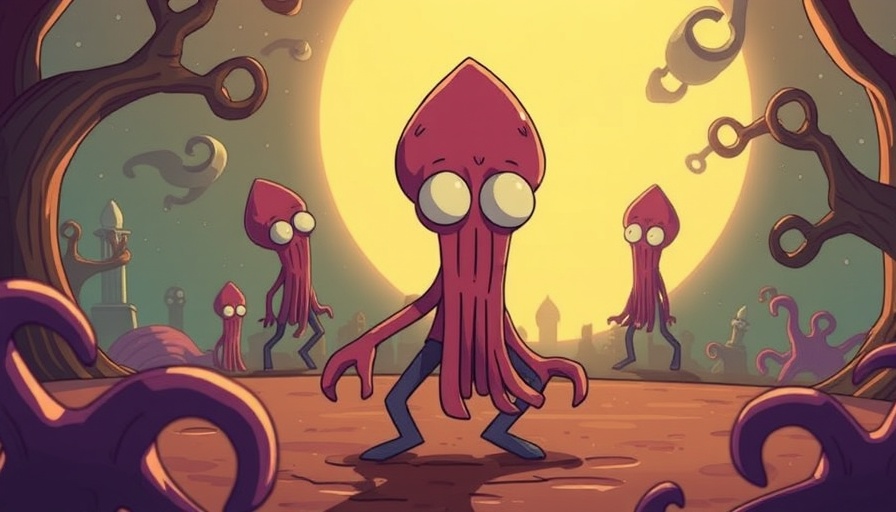
Squid Game: An Eye-Opening Reflection of Our Times
The much-anticipated third season of Squid Game is set to be more brutal than ever, captivating audiences who are both enthralled and horrified by its harrowing narrative. Creator Hwang Dong-hyuk has confirmed that the series will maintain its dark theme, delving into society's failures and the ethical dilemmas of humanity. His intent is clear: to inspire viewers to reflect on the world’s harsh realities and their own humanity.
The Dark Appeal of Desperation
The show transcends mere entertainment; it is a cultural phenomenon that has resonated globally. Its unsettling premise—rich individuals exploiting the needy through deadly games—serves as a critique of contemporary capitalism. This theme resonates deeply among digital nomads, who often navigate economics and society in various countries. The success of Squid Game is a testament to how captivating storytelling can emerge from troubling societal issues.
The Characters That Keep us on Edge
As audiences prepare for the series' final confrontation, they'll be reminded of the complex characters who have defined its identity. From the child-like innocence juxtaposed with savagery to new additions like the wild “Thanos,” whose unpredictable motivations keep viewers guessing, the show's character evolution parallels the unpredictability of life itself. For digital nomads with eyes set on cultural exploration, these characters serve as a window into varying human conditions across cultural contexts.
The Risks of Desensitization in Media
One significant concern surrounding Squid Game is the potential desensitization of audiences to violence. As Hwang points out, the extreme brutality might numb viewers to real-world violence, raising questions about our society's acceptance of gory entertainment. For those who travel and work globally, this poses a significant point of reflection on the ethical implications of what we consume as media educators and travelers.
The Cultural Impact: More than Just Entertainment
While critics argue about the moral responsibilities of creators, others see Squid Game as an essential critique of systemic failures. Its position in popular culture has reached unprecedented heights, leading to discussions about topics such as social inequality and survival in a capitalist society. In this light, its spinoffs and adaptations, including reality TV versions, echo the very themes it portrayed, perpetuating its themes in a disturbing yet fascinating circle of societal introspection.
Future of Storytelling in Streaming Media
As we look towards the finale of Squid Game, it's essential to consider how this series form the future of storytelling in streaming media. With shows becoming increasingly brutal yet popular, what does this mean for upcoming narratives? It's vital to determine if creators will push boundaries further or if there will be a pivot towards more uplifting plots. Digital nomads, in particular, may find themselves at the crossroads of reflecting on how entertainment influences views of cultural practices worldwide.
Call to Action
As we stand at the crossroads of aggressive storytelling and cultural reflection, engage with the content you consume. Consider how media shapes your worldview and influences global perspectives. Explore the ethos behind Squid Game and engage in discussions about its impact on society.
 Add Row
Add Row  Add
Add 




Write A Comment